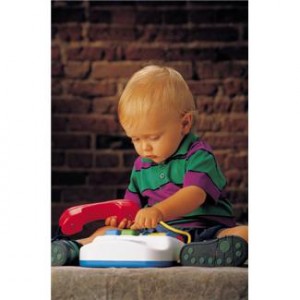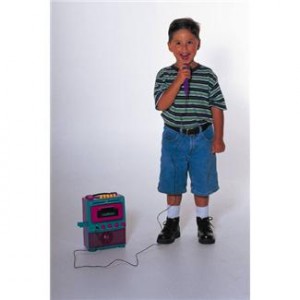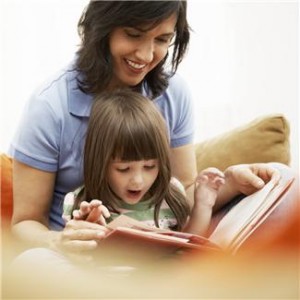Supporting different ways of learning is part of kindergarten readiness. Even as a grown-up, do you find that some things are eady to learn and some quite difficult? The same thing happens for children because our brains have different ways to learn. This brain personality is called learning styles. Learning styles are our individual preferences and strengths in the way we learn. The 3 basic learning styles are: visual, auditory and kinesthetic.
 Generally, children that are strong auditory learners like songs and stories. They may prefer toys such as small people or characters. As they play, the child may pretend conversations between the people. They enjoy listening to books. These children are often early talkers which may indicate an auditory learning preference. They may find puzzles hard to figure out; drawing and painting may not be favorite activities.
Generally, children that are strong auditory learners like songs and stories. They may prefer toys such as small people or characters. As they play, the child may pretend conversations between the people. They enjoy listening to books. These children are often early talkers which may indicate an auditory learning preference. They may find puzzles hard to figure out; drawing and painting may not be favorite activities.
Support for this type of learner is both encouraging the activities that your child is good at and including activities that are more challenging. When sharing a book with your child, spend some time just looking at the pictures. Guide your child to also play with paper, crayons and chalk as well as puzzles and construction toys. This will help your child explore different ways to learn and promote his/her kindergarten readiness as well as expanding brain connections. Do you think your child has an auditory learning style?


